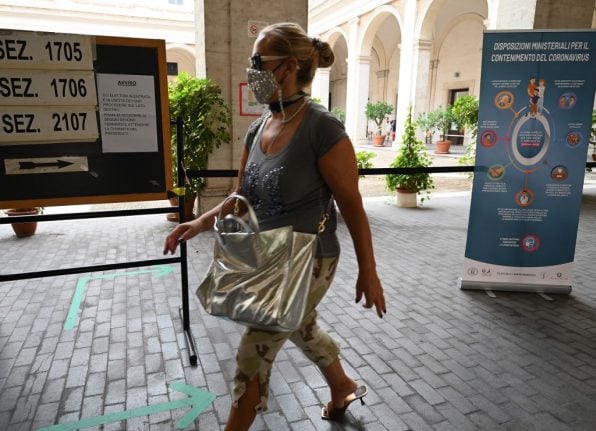A center-right coalition led by the once-powerful League leader Matteo Salvini won in three Italian regions but failed to snatch the left-wing stronghold of Tuscany, where the close-fought battle was seen as decisive for the country – and for Salvini.
READ ALSO: Why the rest of Italy is watching Tuscany's regional elections closely
The right triumphed instead in its usual strongholds of Veneto and Liguria, as well as taking Marche.
But the defeat in the high-profile battle for the left-wing bastion of Tuscany, ruled by the left for 50 years, came as a blow for the right-wing coalition and a boost to the national government.
Il #Centrodestra conquista una regione rossa in più, le #Marche e un senatore in Sardegna. Da oggi 15 regioni su 20 verranno governate da #Lega, #FratelliDItalia e #ForzaItalia. Nessuna da quel #M5S che esprime il Premier #Conte. ??#elezioni2020 #ELEZIONIREGIONALI2020 pic.twitter.com/MGrRhNYu89
— Giorgio La Porta (@Giorgiolaporta) September 21, 2020




 Please whitelist us to continue reading.
Please whitelist us to continue reading.
You have to laugh at Italian politics, the oppositions hold 15 out of the 20 regions yet the sitting governments feels much safer now that they won in Tuscany and will remain in power. What a crazy world we live in.